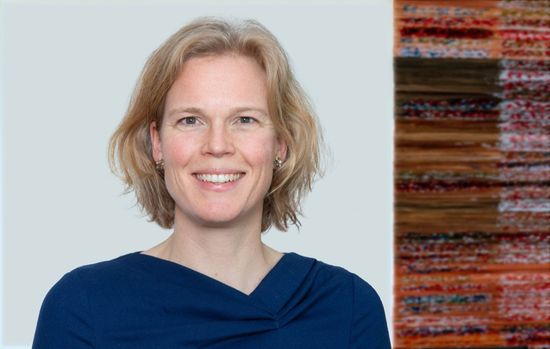
Wie ein Brennglas hat die weltweite Coronavirus-Pandemie offengelegt, was in der Online-Bildung schon funktioniert und was noch nicht. Wer schnell etwas für die eigene und die öffentliche Gesundheit tun wollte, belegte Onlinekurse, zum Beispiel der Weltgesundheitsorganisation WHO. Und Beschäftigte, die ihr Arbeitspensum reduzieren mussten oder den Job gar ganz verloren, setzen nun ihre Hoffnung auf virtuelle IT-Lernangebote, um ihr Berufsleben zukunftssicher zu machen. Ganz zu schweigen von Lehrkräften, Jugendlichen und Eltern, welche mittlerweile – mehr oder weniger unfreiwillig - Experten für digitalen Schulunterricht in der Cloud geworden sind.
Im diesjährigen openHPI-Forum, welches erstmals virtuell stattfindet, möchten wir mit Ihnen diskutieren, wie Covid-19 sich auf unterschiedliche Bereiche ausgewirkt hat und erörtern, was mögliche Langzeitfolgen, was nur kurze Trends sind. Seien Sie dabei!
English version below
Language: English
Deutsch, English
Course information
English version below
Covid-19 - Beschleuniger der Digitalisierung
Die von der Covid-19-Erkrankung ausgelöste Krise hat zweifellos als Beschleuniger des Online-Lernens gewirkt – allen Unkenrufen über schnelle Ermüdung und schwindende Aufmerksamkeit am Bildschirm zum Trotz. Gelernt haben beide – Anbieter wie Nachfrager von Wissen. Das Menu von Inhalten ist vielfältiger geworden, die pädagogisch-didaktische Darbietung mundet besser. Zutaten sind kurze Videos, abgelöst von interaktiven Quizzen und Prüfungen. In Diskussions-Foren tauschen Lernende untereinander und mit Lehrenden Ideen und Lösungsansätze aus – moderiert von Mentoren bzw. Tutoren.
Status der Massive Open Online Courses (MOOCs)
Massive Open Online Courses (MOOC) werden diese Angebote genannt. Schon seit rund zehn Jahren gibt es sie, ausgehend vom Hochschul-Sektor. Proklamiertes Ziel: die "Demokratisierung der Bildung", die Egalisierung von Bildungschancen, vor allem in Ländern mit begrenzten Möglichkeiten. Einzelne der ersten Kurse zogen in den USA sogar bis zu 160.000 Teilnehmende aus aller Welt an. Dann wurde es etwas stiller um die MOOCs, Skeptiker vermuteten bereits, es habe sich lediglich um ein „Strohfeuer“ gehandelt. In Wirklichkeit begann die Zeit von Versuch und Irrtum, die Phase des Experimentierens. Vom kompletten Online-Studiengang bis hin zum maßgeschneiderten Kurs, der spezielle, am Arbeitsmarkt stark nachgefragte Fertigkeiten wie das Programmieren schult, reicht mittlerweile die Spanne.
Es gibt Gratis-Angebote und kostenpflichtige Kurse. Lehrende sind oft die besten Professoren und ausgezeichnete Wissenschaftler. Niemals zuvor war deren enormes Wissen für so viele Menschen verfügbar wie jetzt. Derzeit strömen ihnen die Lernwilligen in Scharen zu. Aktives Online-Lernen ist angesagt, mit anregenden spielerischen Methoden, welche das Erlebnis verbessern. Immer mehr schätzen es, nicht von anderen Lernern im Raum abgelenkt oder ausgebremst zu werden und praktisch unbegrenzten Zugang zu einer riesigen Bibliothek von Lernmaterialien zu haben. Die Zeitersparnis beim Lernen ist somit beträchtlich. Mancher lernt und arbeitet im Home Office eben effizienter.
Kurzer Trend oder langfristige Änderung?
Vor diesem Hintergrund wollen wir uns im diesjährigen openHPI-Forum mit folgenden Fragen beschäftigen:
- Wie lange wird der Trend hin zum Online-Lernen anhalten?
- In welche thematische und didaktische Richtung werden sich MOOCs entwickeln?
- Werden Arbeitnehmer, deren Jobs digitale Fertigkeiten erfordern, künftig stärker vor wirtschaftlichen Pandemie-Folgen geschützt sein?
- Welchen Nutzen haben die verbesserten Kenntnisse von Online-Lernern für die gesamte Gesellschaft?
- Wie lässt sich vermeiden, dass Online-Angebote hauptsächlich nur für diejenigen Bildungsbürger Vorteile bringen, die leidenschaftlich gerne lernen und sich aktiv darum bemühen?
- Wie kann digitale Bildung auch für Personen mit geringerer Selbstmotivation interessant und fruchtbar gemacht werden?
- Liegt die Zukunft in einer guten Kombination aus Online-und Präsenz-Lernen, je nach momentaner Erfordernis in der jeweiligen Lebensphase?
Wir freuen uns, dass wir folgende Partnern für Fachbeiträge und Workshops gewinnen konnten:
English version:
Like a magnifying glass, the worldwide coronavirus pandemic has revealed what already works and what does not yet work in online education. Those who wanted to do something quickly for their own health and for the sake of public health took online courses, for example from the World Health Organization (WHO). And employees who had to reduce their workload or even lost their jobs completely are now pinning their hopes on virtual IT learning opportunities to make their professional lives more secure for the future. Not to mention teachers, young people and parents, who have now - more or less involuntarily - become experts in digital school lessons in the cloud.
In this year's openHPI forum, which is taking place virtually for the first time, we would like to discuss with you how Covid-19 has impacted different areas and discuss the possible long-term consequences, as well as what are likely only short term effects. Be a part of it!
The crisis triggered by the Covid 19 disease has undoubtedly acted as an accelerator of online learning - despite all the prophecies of doom about rapid fatigue and the dwindling on screen attention span. Both providers and users of knowledge have learned from the experience. The content menu has become more diverse, the pedagogical-didactic presentation more appealing. The components are short videos, replaced by interactive quizzes and exams. In discussion forums, students exchange ideas and solutions with each other and with teachers - moderated by mentors or tutors.
These offerings are called Massive Open Online Courses (MOOC). They have been around for about ten years, originating in the university sector. The proclaimed goal: the "democratization of education", is expressed as the equalization of educational opportunities, especially in countries with limited opportunities. Some of the first courses in the USA even attracted up to 160,000 participants from all over the world. Then things became a little quieter around the MOOCs, skeptics suspected that it had been merely a "flash in the pan". In reality, the time of trial and error began - the phase of experimentation. In the meantime, the range extends from a complete online course of study to a customized course that trains special skills which are in great demand on the job market, such as programming.
There are free offers as well as fee-based courses. The teachers are often the best professors and excellent scientists. Never before has their enormous knowledge been available to so many people as now. At present, those interested in learning are flocking to these courses in droves. Active online learning is the order of the day, with stimulating playful methods that enhance the experience. More and more people appreciate not being distracted or slowed down by other learners in the room and having virtually unlimited access to a huge library of learning materials. The time saved while learning is therefore considerable. Some people learn and work more efficiently in the home office setting.
How long will the trend towards online learning continue? Will it remain stable in the long run because more and more work and everyday life is being done online? In which thematic and didactic direction will MOOCs develop? Will employees whose jobs require digital skills be better protected against the economic consequences of a pandemic? What benefits will the improved skills of online learners have for society as a whole? How can we avoid a situation where online offers mainly only benefit educated citizens who are passionate about learning and actively engaged in it? How can digital education be made interesting and fruitful for people with lower self-motivation? Does the future lie in a good combination of online and face-to-face learning, depending on the current needs in each phase of life? Questions like these will be raised and answered in our openHPI-Forum.
Photo: Adobe Stock
Course contents
Speakers
Week 1
Live Session Week 1:
On Friday, 16th of October, we are looking forward to our first live session which gives you the opportunity to interact with the other learners and the speakers.Week 2
Live Session Week 2:
On Friday, 23rd of October, we are looking forward to our second live session which gives you the opportunity to listen to a virtual panels, and to participate in interactive workshops.I like, I wish
Enroll me for this course
Learners
Rating
This course was rated with 5.0 stars in average from 4 votes.
Certificate Requirements
- Gain a Confirmation of Participation by completing at least 50% of the course material.
Find out more in the certificate guidelines.
This course is offered by
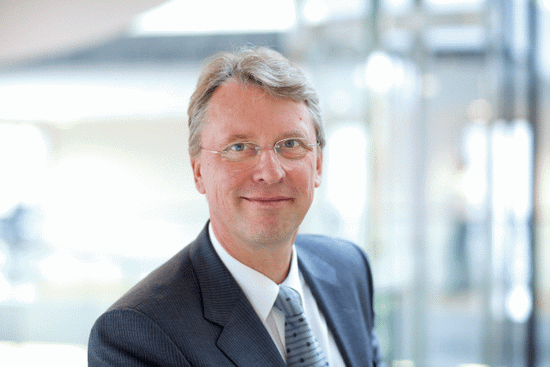
Christoph Meinel (Univ.-Prof., Dr.rer.nat., Dr.sc.nat., 1954) was Managing and Scientific Director of the Hasso Plattner Institute for Digital Engineering gGmbH (HPI) until March 2023. He is a full professor (C4) for Informatics at the university of Potsdam and has the chair for "Internet Technology and Systems" at the HPI. From 2017 to 2021 he was the founding dean of the Digital Engineering Faculty of the University of Potsdam.
His research interests are broadly diversified in the area of innovative Internet applications and systems, especially in digital education, e-learning & tele-teaching, artifical intelligence and deep learing, and Internet and information security. He is also active in the field of innovation research and investigates the Stanford innovation method design thinking. Former research interest were in telemedicine, as well as in the theoretical foundations of computer science in the areas of complexity theory and efficient OBDD-based algorithms and data structures.

Head Learning and Capacity Development
WHO Health Emergencies Programme
More information on Dr. Gaya Gamhewage
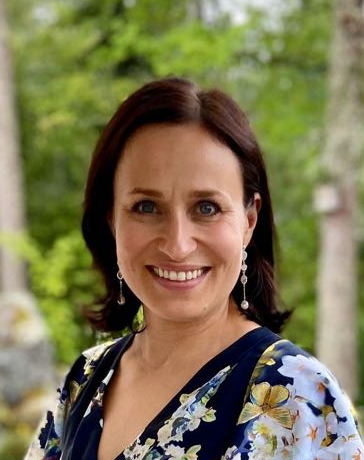
COVID-19 Online learning lead
WHO Health Emergencies Programme
More information on Heini Utunen

Coordination, OpenWHO COVID-19 Learning production
WHO Health Emergencies Programme
More information on Richelle George

Program Manager Competitions & Curation
AI Campus
More information on Mike Bernd

Sebastian Serth is a Ph.D. student in the openHPI team at the Internet Technologies and Systems group led by Prof. Dr. Christoph Meinel at the Hasso Plattner Institute. In his research, he focuses on programming MOOCs and supportive learning environments, such as the programming platform CodeOcean for which he is mainly responsible. He has already supervised various online courses on the institute's own platforms as well as bachelor and master courses at HPI.

Universities Alliances Director Austria
SAP Next-Gen Innovation Network Austria
More information on Silvia Rathgeb

German Rectors' Conference
Project Manager "Hochschulforum Digitalisierung"
More information on Martin Rademacher

Global Head of openSAP
More information on Michaela Lämmler and the openSAP talks

Founder of openSAP
More information on Clemens Link

Instructional Design Lead, openSAP
More information on Torsten Hams
Master Student, HPI
More information on Lisa Ihde
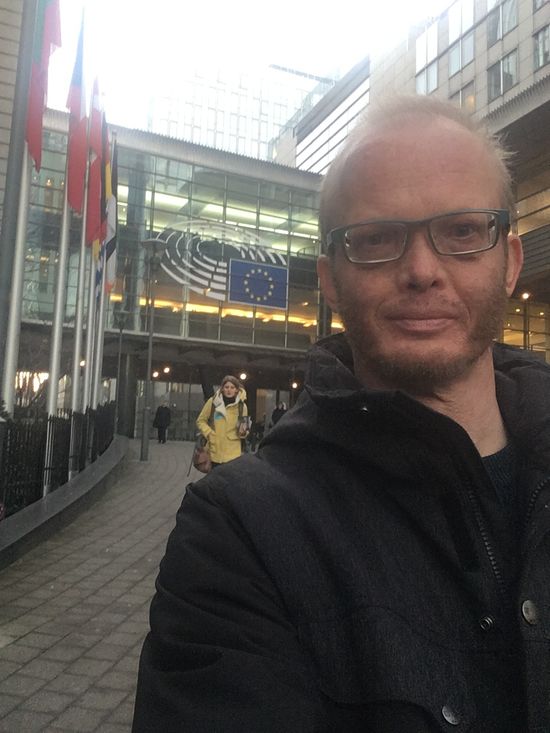
Science and Education Department, SWR
More information on Dr. Dirk Neumann

Bachelor student, HPI
Chairman of the student representative group (FSR)
More information on Silvan Verhoeven

Chair of Business and Economics Education
University of Mannheim
More information on Prof. Dr. Dirk Ifenthaler

Academic Dean
HTWK Leipzig
More information on Prof. Dr. Andreas Thor

Research Associate
Project HPI Schul-Cloud
More information on Florian Sittig

Assistant Professor in the Comparative Media Studies
Massachusetts Institute of Technology (MIT)
More information on Justin Reich

Director Learning Innovation Lab
Bucerius Law School
More information on Sven Störmann
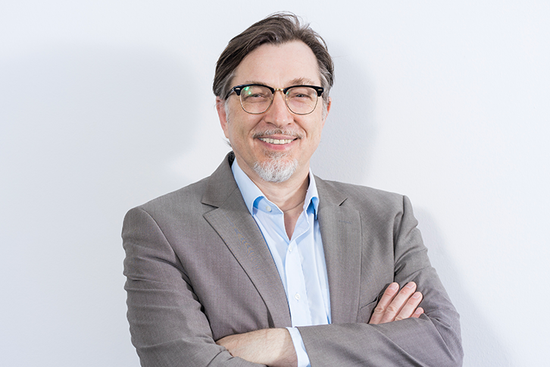
Lecturer at Hasso Plattner Institute
More information on Dr. Thomas Staubitz

Managing Director
oncampus
More information on Andreas Dörich

Vice Rector for Strategy and Digital Education
University Carlos III of Madrid
More information on Prof. Carlos Delgado Kloos

Senior media developer at SAP
More information on Lorna Richards

Senior Lecturer at the Institute of International Management
FH Joanneum
More information on Christian Friedl

Director of the Executive MBA Program
Cracow School of Business
More information on Agnieszka Zur.

